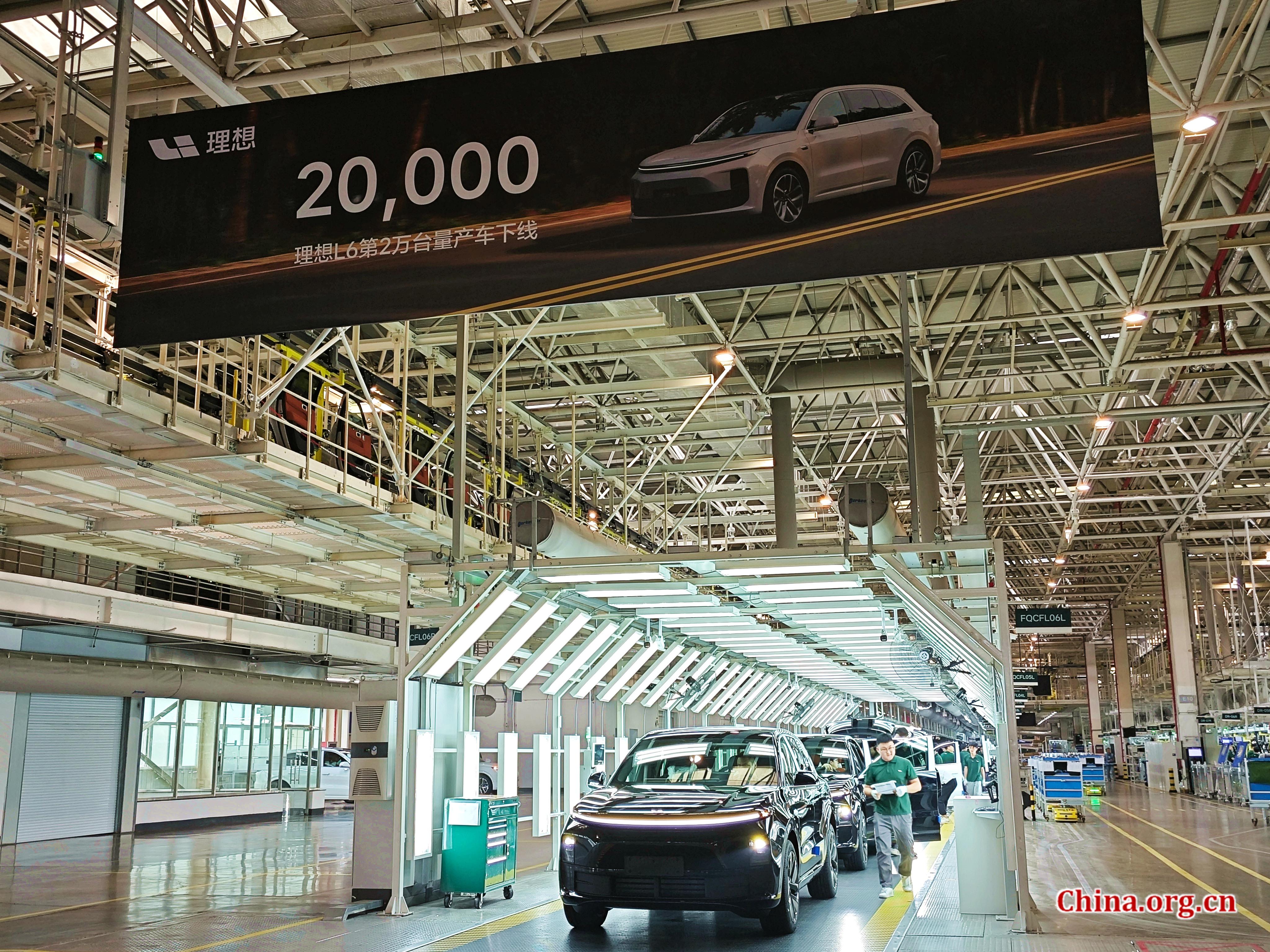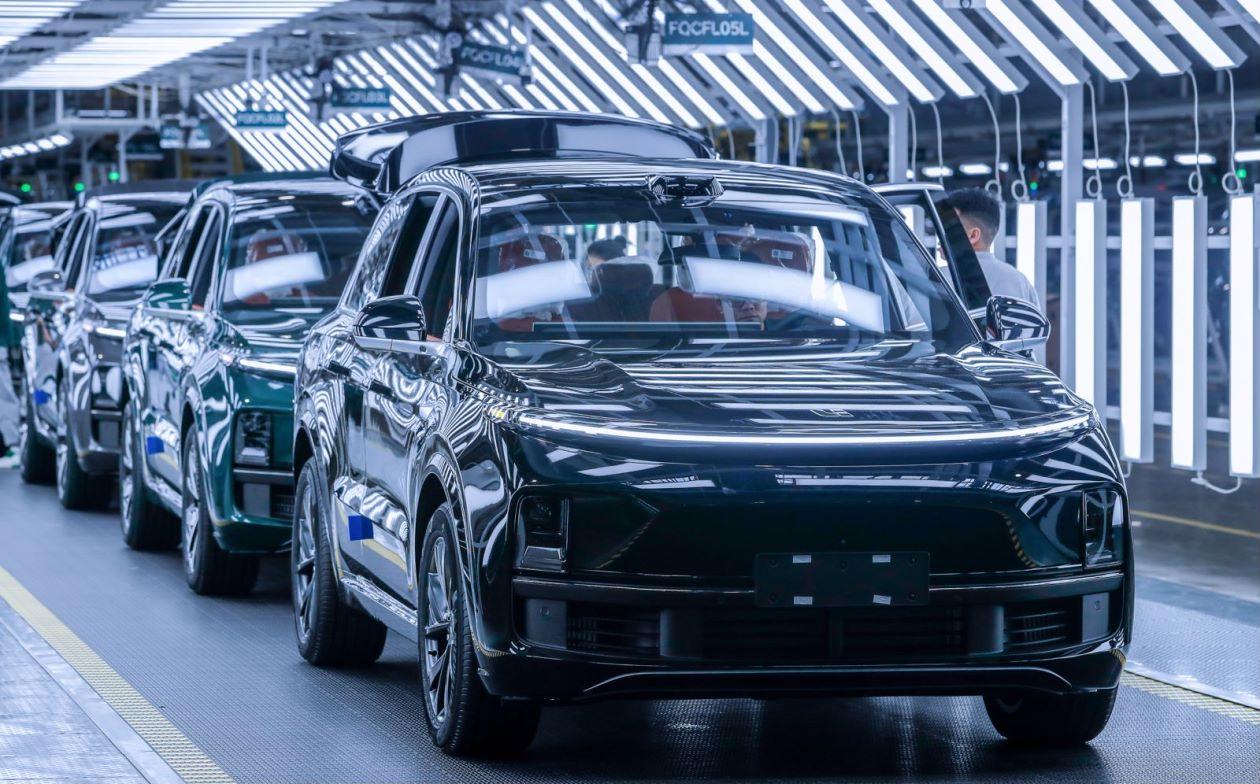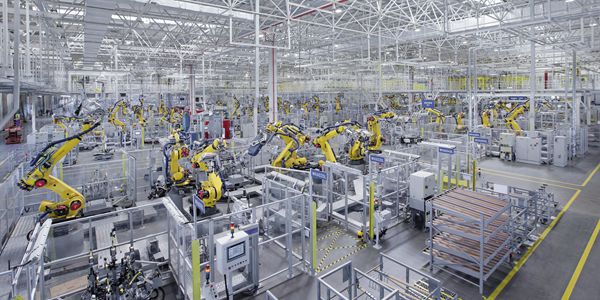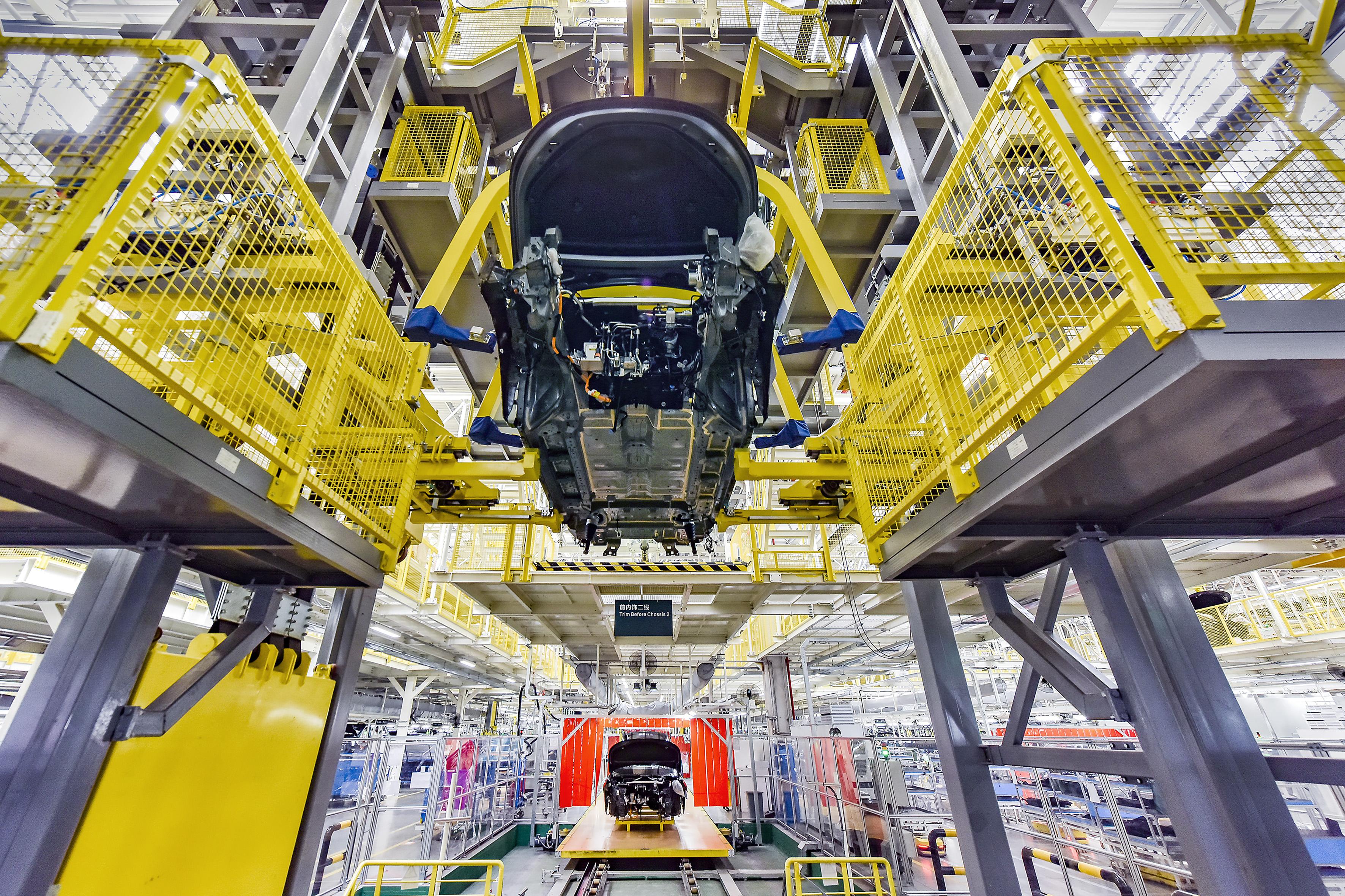
Home
Index
Changzhou emerges as key player in China's new energy vehicle industry
China's new energy vehicle (NEV) startup Li Auto marked a milestone on May 31 when its 20,000th Li L6 vehicle rolled off the production line at its Intelligent Manufacturing Base in Changzhou, a city in east China's Jiangsu province that has become a hub for the country's rapidly growing NEV sector.

Photo taken on May 31, 2024, shows Li Auto's Intelligent Manufacturing Base in Changzhou, east China's Jiangsu province. [Photo by Wang Yiming/China.org.cn]
Founded in 2015 by entrepreneur Li Xiang, Li Auto has quickly emerged as a key player in China's NEV market.

Li Auto's Intelligent Manufacturing Base in Changzhou, east China's Jiangsu province. [Photo provided to China.org.cn]
The company's recent achievement came just over a month after the launch of its new extended-range electric vehicle, the Li L6, on April 18, 2024.
"In less than two months, the production of a brand-new car has surpassed 20,000 units – this is the speed of Li Auto and the speed of China," said Li Bin, vice president of the automaker and head of the company's Changzhou manufacturing base, emphasizing the company's innovation-driven approach to enhancing production efficiency and quality.

Li Auto's Intelligent Manufacturing Base in Changzhou, east China's Jiangsu province. [Photo provided to China.org.cn]
Li highlighted Li Auto's commitment to self-developed core technologies, introducing the company's intelligent manufacturing "super brain," which includes the "Lianshan System" and "Li-Mos System." These systems integrate data across research, manufacturing, supply chain, and user interfaces, allowing Li Auto to produce a car every 40 seconds and roll 90 new cars off the assembly line each hour, according to Li.

Li Auto's Intelligent Manufacturing Base in Changzhou, east China's Jiangsu province. [Photo provided to China.org.cn]
Li Auto, headquartered in Beijing, operates two major production bases in Beijing and Changzhou. The city of Changzhou has played a crucial role in Li Auto's success since 2016 when Li Xiang chose the city as the production base for his startup after several rounds of negotiations. The city enticed Li's team with a "factory construction + investment attraction" model, resulting in a 780 million yuan ($109 million) investment from the Wujin Industry Fund.
"Changzhou's business environment is excellent," said Li Bin, noting that the company's batteries come from the nearby Jintan district, while many traditional components are sourced locally or from the surrounding Yangtze River Delta region.
Changzhou is dedicated to becoming the "Capital of New Energy," having issued policies to accelerate its development since 2013. In addition to Li Auto, leading companies such as CATL and BYD have established operations in the city. In August 2023, Changzhou released a plan to accelerate the construction of an NEV component industry ecosystem, encompassing industry, innovation, capital, and policy.
In 2023, Changzhou's NEV sector achieved an output value of 140 billion yuan, with a production volume of 678,000 vehicles. Nationally, Changzhou contributed about 680,000 vehicles to China's total NEV production of 9.58 million units, meaning one out of every 14 NEVs in China was made in the city. Additionally, nearly seven of every 10 NEVs produced in Jiangsu province originated from Changzhou.
Changzhou's support for the new energy industry not only underscores its pivotal role within China's expanding NEV market but also reflects the nation's dominant position in the global arena. As electric vehicles become increasingly prevalent worldwide, China has maintained the top position in NEV sales for the past nine years, securing over 60% of the global market share.
SOURCE:China.org.cn



